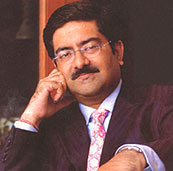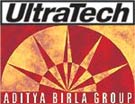Buying Novelis was the right decision
20 May, 2009 | The Economic Times
ShareThe Economic Times
20 May 2009
Mr. Kumar Mangalam Birla is hopeful that joint efforts of the Hindalco-Novelis team will help Novelis sail through
Buying Novelis was the right decision, says Mr. Kumar Mangalam Birla, Chairman, Aditya Birla Group The Novelis acquisition, along with Corus and Jaguar-Land Rover, was symbolic of the fierce aggression some Indian companies displayed at the height of the bull run. Though, unlike the other two, Novelis has managed to refinance its debt, it's still an open question if the acquisition will succeed in the long run. On another front, the Aditya Birla Group recently initiated a top-level reshuffle aimed at retaining some of its senior Executives who had just retired. At a more strategic level, the Group's Chairman Mr. Kumar Mangalam Birla has decided to drive the Group's financial services business (insurance, AMC, broking) as a new growth area for the $29-billion conglomerate that earns more than half of its revenue from outside India. ET met Mr. Birla in his office last week for an exclusive interaction. He later provided written answers to a few follow-up questions. The entire interview was completed before the announcement of election results on Saturday.
The Novelis acquisition, along with Corus and Jaguar-Land Rover, was symbolic of the fierce aggression some Indian companies displayed at the height of the bull run. Though, unlike the other two, Novelis has managed to refinance its debt, it's still an open question if the acquisition will succeed in the long run. On another front, the Aditya Birla Group recently initiated a top-level reshuffle aimed at retaining some of its senior Executives who had just retired. At a more strategic level, the Group's Chairman Mr. Kumar Mangalam Birla has decided to drive the Group's financial services business (insurance, AMC, broking) as a new growth area for the $29-billion conglomerate that earns more than half of its revenue from outside India. ET met Mr. Birla in his office last week for an exclusive interaction. He later provided written answers to a few follow-up questions. The entire interview was completed before the announcement of election results on Saturday.
 On second thoughts, do you think Novelis was the right thing to do?
On second thoughts, do you think Novelis was the right thing to do?
It was absolutely the right decision. Yes, we could have bought it cheaper had I bought it now. But you cannot time the market. In India, we are not used to seeing investments of this scale...so it will take time to understand. The fundamental reasons for which we acquired Novelis - global market leadership, cutting-edge technology, going up the value chain in the largest segment of value-added products and a highly-competent team - remain unchanged. However, Novelis has been impacted negatively, especially due to the fall in markets in North America and Europe in the past two quarters. Our Hindalco-Novelis teams are working hard to take appropriate action. I remain very confident, that the inherent strengths of Novelis will see it through the next two years. Our commitment to Novelis is unflinching.
The world economy is going through a bad patch. How is the Group coping?
In 2008-09, the world economic order witnessed collapse, upheaval. It is a truism that tough times don't last, tough people do. At a time like this, we constantly remind ourselves that our collective endeavour is to build businesses for the long haul. In the past too, there have been sharp swings in business cycles — and there will be more of these in the future, though hopefully not of the magnitude and ferociousness we are seeing now. And each time in the past, we have come out of the storm, fitter and stronger. Even today, we are handling the pressures with tough-mindedness and tenacity, knowing well that this storm too shall pass.
Our businesses are inherently strong on fundamentals, be it cost of manufacturing per unit, capex cost per unit, cost and quality of our service businesses, as the case may be. That cost gives us an edge only in the commodity business and not in the service business is a myth that has now been shattered. We are very fortunate to have with us people with integrity, whose commitment remains unflinching, even in the face of adversity. Examples of excellence achieved through sheer grit and determination, unrelenting effort and superior levels of competence have been, and are, in our case, not sporadic, but a constant feature over the years.
Which are the sectors which have started doing better?
Textiles and metals. In fact, textiles was the worst hit among all sectors. Cement has also started doing well. But that's mostly because of its own industry dynamics. I think, monsoon will not impact the cement demand this time. Last year, it had no impact. Builders are making the largest money in this value chain.
What are the factors driving the metal industry?
China has started looking up because of its construction activities. Automobiles also have a little share in the growth of the metal sector. However, this is not a big turn. These are early signs of revival.
What about your capex plans? Have they been impacted because of the slowdown?
Not really. We had a lot of capex in on-going projects, so we did not cancel them. We have been investing heavily in alumina, carbon black and cement projects.
 Hindalco-How is Hindalco doing?
Hindalco-How is Hindalco doing?
Our metal cash costs are in the top 15th percentile worldwide. Hindalco is the lowest cost producer in India at $1,475 per tonne. 13 per cent of the world output has already been slashed in the past few months, and if the downturn continues, more capacity closures could be expected. On the other hand, Hindalco will increase production by 10 per cent in the current financial year.
As regards our greenfield projects, there is a total capex of approximately $1.7 billion, our smelting capacity will increase from 0.5 million tonnes at present to seven million tonnes over the four years; with three new projects of 360,000 tonnes capacity each going on stream. Our refining capacity will increase from 1.7 million tonnes at present to 6.15 million tonnes, with two greenfield projects. These expansions will enable Hindalco to operate at a cash cost of $1,000 per tonne, against a global average of $1,606 per tonne. With the completion of all projects, and assuming an LME of $2,000 per tonne, we will be generating around $1.6 billion of cash annually from operations.
Do you consider Idea to be an integral business of the Group?
Yes, it is. We have built it over a long struggle.
 Aditya Birla NuvoIdea's valuation is higher than parent Aditya Birla Nuvo. Is that an anomaly?
Aditya Birla NuvoIdea's valuation is higher than parent Aditya Birla Nuvo. Is that an anomaly?
Lots of subsidiaries are bigger than their parents. There is nothing wrong in it.
Any plans on divestment of the promoters' stake in Idea? There is speculation that (South African telco) MTN was interested...
I don't know whether MTN was interested. But most of the global players keen to have a presence in India should be interested in Idea. But we are not talking to anyone.
Will you be interested in taking a strategic investor on board, in principle?
You can't say never in business. But definitely we are not interested at this point in time.
Is there room for Telecom Malaysia to scale up its stake?
They are not looking at this now. We have clear understanding that we would discuss, before any one of us increases stake.
What about the fertiliser business? Is it up for sale?
Not at all. It has a good capacity to generate cash. And the (fertiliser) policy may likely be changed now. I think, the government will encourage fresh capacity addition in the fertiliser business. With fertiliser imports draining foreign exchange, the government thinks it makes more sense to encourage the industry to augment production.
Are you creating a holding company structure for financial services business?
We are looking to form a holding company for the financial services business. We have reached critical mass in this business. Our AMC's market share has increased from 6.8 per cent in March 2008 to 9.5 per cent in March 2009, moving our rank one notch ahead — to number five, in spite of extremely difficult conditions in 2008-09. Distribution is a key value driver for success in this business and our AUM with top 20 distributors in the industry has grown 200 per cent.
In insurance, in terms of new business, we have achieved a growth of 44 per cent, compared with a growth rate of 6 per cent of other private players while the industry de-grew by 3 per cent. Consequently, our market share has grown from 6.6 per cent in March 2008 to 9 per cent in March 2009. A lot of private equity players have shown interest in participating in our financial services business. We may not do (divest) it now because its not a great time for the capital markets. Potentially, it is something that will happen.
 UltraTech What is the status of L&;T's 11.5 per cent stake in UltraTech?
UltraTech What is the status of L&;T's 11.5 per cent stake in UltraTech?
L&;T is supposed to divest its stake by December. We have a very comfortable holding in UltraTech. Plus, we have the right of first refusal. However, I think, there is no pre-determined price, at which the transaction should take place. But we have agreements as to whom L&;T could sell the stake to — they (L&;T) can't sell to a strategic investor and not beyond a certain limit to a financial investor. They can sell in the market but can't sell a big chunk to one investor.
The Group's principle is that all its businesses should be among the top three players. Where are you in financial services and retail?
We are getting there in financial services. In the past two years, our percentage increase has been among the top players in the industry. We are outpacing the industry...and in retail, I think, we are very much in the top three in our format of supermarts. Now, we are going into hypermarts, with 30,000-40,000 sq feet of area. We are not buying real estate for our retail properties. In the past six months, we have re-negotiated almost every property. Our rentals have come down 30-40 per cent in this period.
Do you have plans to induct strategic investors in retail?
We are not interested in inviting a strategic partner. But we will be happy to have a financial partner. We have received lots of preliminary interest from investors. We would be open to this idea. But I think, guidelines should be clear.






